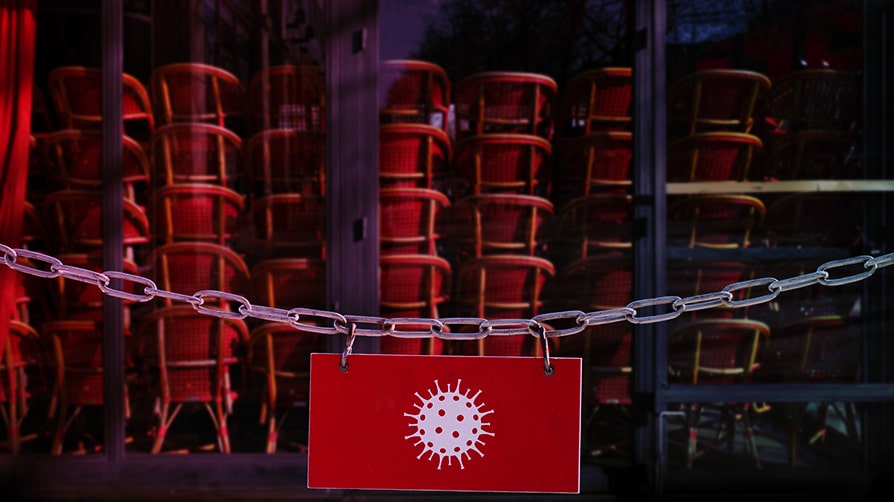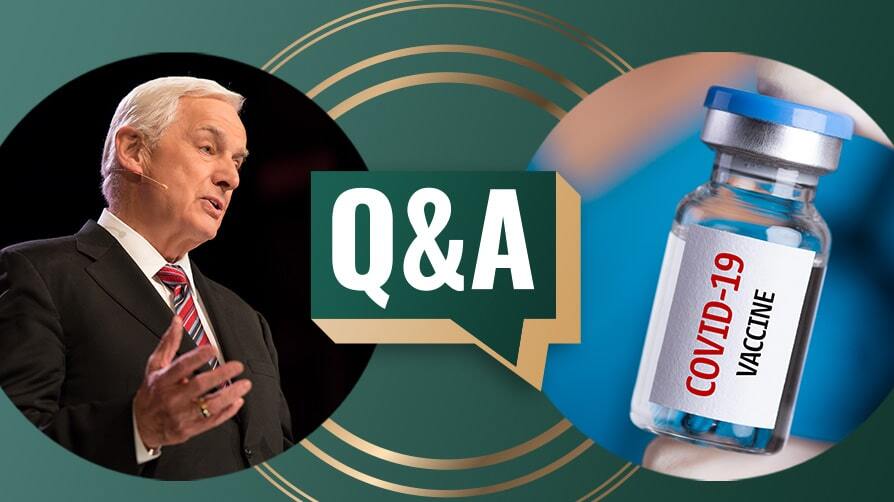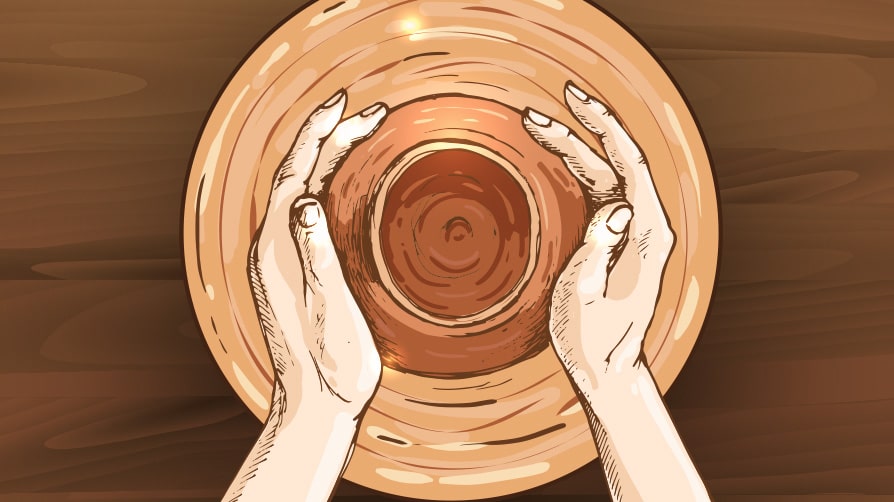Where can we go during times of trouble? One answer is Zahara de la Sierra in the Cádiz province of southern Spain.
Originally built as a castle and fortress in the Andalusian Mountains, Zahara has endured as a place of refuge and security for nearly a thousand years. The town was founded as an outpost for the Moors of the Maghreb; its location between the cities of Ronda and Seville was critical for military strategy.
While armies crisscrossed Spain during the Middle Ages, Zahara stood strong against both soldiers and siege. Opposing forces could not escape the all–seeing watchmen on top of Zahara’s walls, and any attempted incursion involved a steep and harrowing climb long before any battle was joined. The castle was eventually captured in 1483 by forces under the command of the Duke of Cádiz, but not without great effort and great loss of life.
Today, Zahara de la Sierra is a picturesque village of whitewashed houses famously known as pueblos blancos. Tourists flock to the town for breathtaking views of the surrounding mountains and the clear, turquoise waters of the Zahara el–Gastor reservoir—not to mention the scintillating smell of orange blossoms from the surrounding countryside. Instead of soldiers and watchmen, visitors today find friendly locals eager to share their stories and their traditional Spanish cuisine.1
{ms_advert_7_box}Shelter on the Mountain
A new enemy was creeping along the Spanish countryside.
In March of 2020, however, it became obvious to Zahara’s forty–year–old mayor, Santiago Galván, that a new enemy was creeping along the Spanish countryside, extending its tentacles through the Cádiz and seeking to make its way up the mountains toward his town. This enemy’s forces had already paralyzed great empires and threatened more devastation worldwide.
The enemy had many names, but the ones used by most Zaharans as they whispered together in their mountain homes was COVID–19. Or, more commonly, “the coronavirus.”
On March 14, Galván used his authority as mayor to “shut the gates” of Zahara. The entire town was closed, its only road in or out blocked and barricaded. All 1,400 residents were ordered to remain in their homes for an indefinite period of time, and no outsiders were permitted entry. The entire village was effectively quarantined not only from the virus, but also from the outside world.
The townspeople fully supported the mayor’s drastic steps. In fact, they joined together in an effort to keep their fortress secure. Two workers took up a car–washing station along the town’s main street, using equipment typically reserved for washing olive trees in order to sanitize the vehicles of any residents who needed to venture out. Every Monday and Thursday at 5:30 p.m., a group of ten citizens donned protective gear and stepped outside to disinfect the streets. Other volunteers made sure the elderly had enough food and could request home repairs when necessary.
As I write this, the town’s efforts seem to be working, even as the broader community in Spain has been hit hard. There have been more than 170,000 coronavirus cases in Spain. Tragically, more than 18,000 of those cases have resulted in death, the third–highest total among all the countries in the world.
Yet not a single person within the boundaries of Zahara has been infected.
Speaking by phone, Mayor Galván expressed pride in the spirit of his townspeople, as well as Zahara’s status as a strong refuge. “We have managed to give tranquility to our neighbors,” he said. “They know no one ‘unknown’ can come in.”2
There are many who wish they could face the coronavirus’s continued encroachment with the confidence of Mayor Galván and the people of Zahara. I wish the same were true of me! I would give much to move my family and my congregation to some isolated mountain peak so we could weather this troubling storm together.
Shelter in Place
Alas, I have no such assurances against this particular manifestation of “the unknown.” I must face it rather than hide from it, and I’m sure the same is true for you.
Personally, I have encountered many sobering seasons throughout my lifetime. I’ve seen wars begin and end. I’ve witnessed religious persecution break out in totalitarian regimes with surprising speed and violence. I was among those who watched the news each night, breathless with tension, during the Cuban missile crisis at the height of the Cold War. I have lived through the entire HIV/AIDS epidemic, which began when I was a young pastor in the 1980s. And I can still remember watching helplessly as Flight 175 crashed into the South Tower of the World Trade Center on September 11, 2001.
But I can’t say I’ve seen anything quite like the coronavirus pandemic that is currently squeezing every nation in its quick and deadly grip.
At the time of this writing, more than two million people have been diagnosed with COVID–19. More than 125,000 have died from the disease.3 Because of the speed and virulence of the coronavirus, more than half the people on this planet are “sheltering in place” under government–mandated instructions not to leave their homes for any nonessential activity. The world has literally been locked down.
The virus’s rapid spread has isolated people from the communities they typically turn to in times of tension and fear.
To make matters worse, the virus’s rapid spread has isolated people from the communities they typically turn to in times of tension and fear. Churches have been forced to close their doors. Restaurants are still making meals but only for delivery. Movie theaters, bowling alleys, and most retail stores are out of operation. And in a move that feels especially surreal to me as a California resident, Disneyland closed its doors to the public on March 14—something that has happened only three times in its sixty–five–year history.4
Right now the questions weighing down my mind and heart are the same questions burdening people all over the world—including even those sheltered residents of Zahara. Why is all this happening? Do I have what it takes to get my family through? When will everything go back to normal as a nation? As a church?
And perhaps the most pressing question of all: Where is God in the midst of these difficult times?
Such questions are not unique to the coronavirus, nor are they limited to global pandemics. These are the questions we grapple with whenever disaster falls upon us—especially when disaster strikes seemingly without warning.
Frankly, I don’t know the answers to the first three questions I mentioned above. Outside of conspiracy theories, no one can say why the virus is here. I’m anxious to lead my family during this time, but as a man in my seventies, I feel personally threatened by the coronavirus in a way I haven’t experienced since my recovery from cancer. And as much as I hope life will return to normal in a matter of weeks, I see little hope for that reality on the horizon.
Shelter in God
Where is God during these difficult times? He’s right here.
Thankfully, I do know the answer to that final question, and it brings me peace when all other answers fail. Where is God during these difficult times? He’s right here. Right next to me, and right next to you. The same place He always has been and always will be.
You and I may not have access to a mountain fortress such as Zahara de la Sierra, but we can find refuge from the threat of any disaster—including coronavirus—when we turn to God and seek His presence. That’s because God is with us. He is supporting us. He is equipping us and empowering us with everything we need to endure not only this disaster, but any situation or circumstance we may face.
I know this because even as I am sheltering in place, I am also sheltering in God. I’m allowing myself to be surrounded by His presence and power and peace.
I want the same for you. I want the same for anyone who feels frightened and abandoned and uncertain about the future.
The book of Psalms provides hope for our uncertain times and for any other season of suffering—it offers comfort, inspiration, and confidence as we deal with the “unknown” in life. Most of the psalms were written by David, a man who was well acquainted with trials and tragedies of all kinds. Even so, he was still able to write these words: “The Lord is my rock, my fortress and my deliverer; my God is my rock, in whom I take refuge, my shield and the horn of my salvation, my stronghold” (Ps. 18:2).
Through David’s example, we learn there is hope even in the darkest of nights. Why? Because God is your shelter and mine, and He will not fail.
Psalm 121:1–8
A Song of Ascents.
I will lift up my eyes to the hills—
From whence comes my help?
My help comes from the Lord,
Who made heaven and earth.
He will not allow your foot to be moved;
He who keeps you will not slumber.
Behold, He who keeps Israel
Shall neither slumber nor sleep.
The Lord is your keeper;
The Lord is your shade at your right hand.
The sun shall not strike you by day,
Nor the moon by night.
The Lord shall preserve you from all evil;
He shall preserve your soul.
The Lord shall preserve your going out and your coming in
From this time forth, and even forevermore.
This article is an excerpt from Dr. Jeremiah’s book Shelter in God.
Sources:
1John Kramer, “Visiting Zahara de la Sierra, Andalucia,” Spain–Holiday.com, June 28, 2018, https://www.spain–holiday.com/Zahara–de–a–Sierra/articles/visiting–zahara–de–a–sierra–andalucia.
2Claudia Rebaza and Tim Lister, “The hilltop fortress town that cut itself off from the world—and coronavirus,” CNN.com, April 3, 2020, https://www.cnn.com/2020/04/03/europe/zahara–de–a–sierra–coronavirus–intl/index.html.
3“Coronavirus COVID–19 Global Cases by the Center for Systems Science and Engineering (CSSE) at Johns Hopkins University (JHU),” accessed April 8, 2020, https://www.arcgis.com/apps/opsdashboard/index.html#/bda7594740fd40299423467b48e9ecf6.
4“Disneyland has only closed unexpectedly 3 times. Now it’s closing for the rest of the month,” The Week (March 12, 2020), https://theweek.com/speedreads/901949/disneyland–only–closed–unexpectedly–3–times–now–closing–rest–month.
{ms_advert_5_row}I need help

Your response has been received, and we will be praying for you.
Look for answers to some of the most common questions in the weeks ahead.
It’s no secret that COVID–19 has created an unprecedented crisis in our nation and the world. For the first time in my lifetime, major events and activities have been canceled to stem the tide of a lethal virus. Schools at all levels are either closed for a time or have transitioned to online learning. Broadway theaters have gone dark. Professional sporting events have been suspended. Stock prices are erratic. Social distancing is the new buzz word, and President Trump has declared a national emergency.
What are we to do with all this information?
Everyone seems to have a different idea of how we should respond to the coronavirus. Some people are placing their faith in stockpiles of toilet paper and bleach. Others are dismissing the government’s warnings as an overreaction. Many are overwhelmed and confused.
{ms_advert_5_box}As a pastor—and not an infectious disease expert—I have a different perspective. I find hope in the words Jesus spoke to His disciples in the Upper Room, just before His crucifixion: “Peace I leave with you, My peace I give to you; not as the world gives do I give to you. Let not your heart be troubled, neither let it be afraid” (John 14:27).
These words offer us the opportunity to respond with faith and wisdom instead of fear and panic. As followers of Christ, there are six strategies we can implement as we face the coronavirus pandemic.
1. Concentrate on Prayer
In the middle of all the uncertainty surrounding us at this time, it’s difficult to think of a better prayer than the one spoken by a desperate–but–confident Judean king named Jehoshaphat.
Jehoshaphat’s ancient perspective applies to our current situation more than we might think. In his context, a dangerous delegation from Edom was closing in on Judah, but his faith was all–encompassing. He trusted the Lord in the face of a potential military defeat and for any disaster that might come:
If disaster comes upon us—sword, judgment, pestilence, or famine—we will stand before this temple and in Your presence (for Your name is in this temple), and cry out to You in our affliction, and You will hear and save. (2 Chronicles 20:9, emphasis added)
Throughout the king’s prayer, He appeals to God’s character, His promises, and His actions in the past. The prayer culminates in this statement: “We have no power against this great multitude that is coming against us; nor do we know what to do, but our eyes are upon You” (2 Chronicles 20:12).
Will we pray, or will we worry?
Jehoshaphat could have allowed himself to be consumed with worry, but he prayed instead. We face the same choice: will we pray, or will we worry?
While we remain on alert against viruses of doctrine or disease, worrying won’t change our circumstances or lower our risk of infection. It won’t help us fight off illness or move us to action. Worrying about COVID–19 (or anything else) will only increase our troubles. Rather than worrying and being anxious, Jesus calls us to respond with prayer and faith in Him (Matthew 6:33–34; Philippians 4:6–7).
One author has said, “It takes the same amount of energy to worry as to pray. One leads to peace, the other to panic.”1 This cannot be emphasized enough right now. We need to call out to Almighty God and ask Him to protect us from this disease. We need to ask God to touch those who are infected. We need to pray for everyone on the frontlines of this pandemic—from medical professionals to government officials to aid workers. We need to stand before the Lord in faith.
2. Control Your Mind
The human imagination is a powerful force that can create a vision of a desirable future or conjure up every worst–case scenario. Dark products of the imagination can put us in the grip of fear—a place God would never have us go.
The apostle Paul tells us, “God has not given us a spirit of fear, but of power and of love and of a sound mind” (2 Timothy 1:7). As this Scripture shows, the power that banishes fear is a sound mind. We maintain a sound mind by “bringing every thought into captivity to the obedience of Christ” (2 Corinthians 10:5).
When a thought that is not from God enters our mind, we need to examine it in light of the knowledge of God. We need to ask ourselves, does this thought have any basis in reality? If not, take it captive.
Gaining a sound mind is not as difficult as it sounds. Begin by being in the Word of God every day—and then invite the Holy Spirit to guide your thoughts. A mind centered on the truth of God is the key to controlling your mind.
The best definition I’ve heard for anxiety is “imagining the future without Jesus in it.” When we realize that Jesus is present today and will be present tomorrow, we can be free from worry.
3. Count Your Blessings
In times like these, our blessings become clearer, richer, and more meaningful. Something happens deep in our heart when we count those blessings. Ephesians 1:3 says, “Blessed be the God and Father of our Lord Jesus Christ, who has blessed us with every spiritual blessing in the heavenly places in Christ.” Which spiritual blessings has He provided? Every single one—period!
When we slow down, our concentration sharpens, and our perception of what’s truly important comes into focus, allowing us to appreciate and enjoy the simple blessings of life.
The Bible doesn’t say we have to be thankful for all things. But it does say we should be thankful in all things:
In everything give thanks; for this is the will of God in Christ Jesus for you. (1 Thessalonians 5:18)
Be anxious for nothing, but in everything by prayer and supplication, with thanksgiving, let your requests be made known to God. (Philippians 4:6)
From the Lord’s abundance, we have received countless blessings. Let’s take this opportunity to slow down, focus on Him, and be thankful for His blessings.
4. Claim Your Promises
A man once said to evangelist D. L. Moody, “I’ve found a wonderful verse to help me overcome my fear.” Then he quoted Psalm 56:3: “Whenever I am afraid, I will trust in You.”
“Behold, God is my salvation, I will trust and not be afraid.” Isaiah 12:2
Moody replied, “I can give you a better promise.” And he quoted Isaiah 12:2: “Behold, God is my salvation, I will trust and not be afraid.”
Before he passed away due to complications of ALS in 2016, Pastor Ed Dobson wrote a little book entitled Prayers and Promises, in which he described the weakness he felt during his illness. For years, he had bored into God’s Word like a drill, but eventually, it became difficult for him to read the Bible or even to pray. God responded by giving him a few verses each day that kept him calm and strong. Hebrews 13:5–6 helped him more than any other passage in the Bible: “He Himself has said, ‘I will never leave you nor forsake you.’ So we may boldly say: ‘The Lord is my helper; I will not fear. What can man do to me?’”
God has given us many promises in His Word—we just need to claim them!
Consider Your Responsibility
Writing for The Gospel Coalition, Todd Wagner states:
Throughout history, Christians have often stood out because they were willing to help the sick even during plagues, pandemics, and persecutions. They loved people and weren’t afraid of death because they understood that “to live is Christ and to die is gain” (Philippians 1:21). By stepping into the mess of sickness and disease, they were able to demonstrate their faith to a watching world. So, rather than just asking “How do I stay healthy?” perhaps we should be also ask [sic] “How can I help the sick?” Let’s be quick to help and slow to hide in basements.2
During this time of unprecedented uncertainty, others need to be encouraged and cared for. Call or text someone with an encouraging word or offer to run an errand for someone who is housebound. During this time of personal distancing, take the time to pray with someone on the phone. You can be the hands of Jesus reaching out to those in need today—consider it your responsibility.
6. Continue Your Work
There are a lot of things we are accustomed to doing that we simply cannot do right now. Many of us cannot visit with friends or dine in a restaurant or attend church services. But rather than focusing on what we cannot do, let’s focus on what we can do. Consider the words of this old poem:
From an old English parsonage down by the sea
There came in the twilight a message to me;
Its quaint Saxon legend, deeply engraven,
Hath, it seems to me, teaching from Heaven.
And on through the doors the quiet words ring
Like a low inspiration: “DO THE NEXT THING.”
Many a questioning, many a fear,
Many a doubt, hath its quieting here.
Moment by moment, let down from Heaven,
Time, opportunity, and guidance are given.
Fear not tomorrows, child of the King,
Trust them with Jesus, do the next thing.
Do it immediately, do it with prayer;
Do it reliantly, casting all care;
Do it with reverence, tracing His hand
Who placed it before thee with earnest command.
Stayed on Omnipotence, safe ‘neath His wing,
Leave all results, do the next thing.
Looking for Jesus, ever serener,
Working or suffering, be thy demeanor;
In His dear presence, the rest of His calm,
The light of His countenance be thy psalm,
Strong in His faithfulness, praise and sing.
Then, as He beckons thee, do the next thing.
Do the next thing!
The fact that we are on this earth is a clear indication that God has meaningful work for us to do. If we pray and ask God for guidance, He will show us the next thing to do.
Even as we battle the current pandemic, Jesus comes to us in our struggle, offering the peace and encouragement we need. In John 14:27, He said, “Peace I leave with you, My peace I give to you; not as the world gives do I give to you. Let not your heart be troubled, neither let it be afraid.”
We have access to divine peace and supernatural strength through Jesus Christ our Lord. The only question is whether we will tap into that power. My prayer is that you will join me in choosing to respond to this crisis with peace instead of panic and faith instead of fear. Do the next thing!
Sources:
1Todd Wagner, “Should Christians Be Anxious About the Coronavirus?” The Gospel Coalition, March 3, 2020, https://www.thegospelcoalition.org/article/christians–anxious–coronavirus/, accessed on March 20, 2020.
2Ibid.
{ms_advert_1_row}










